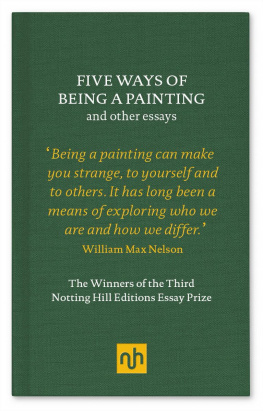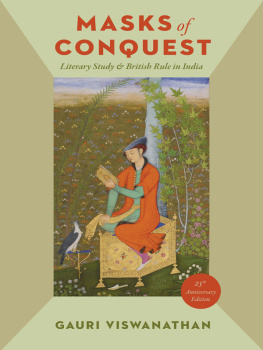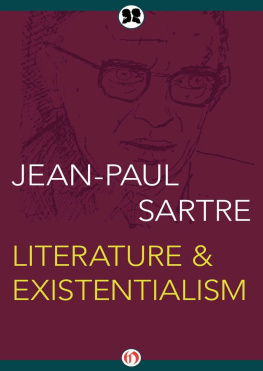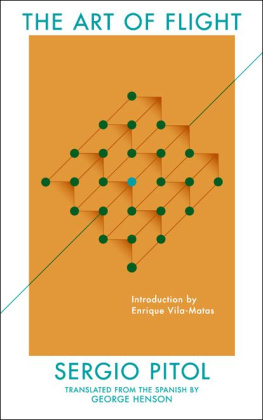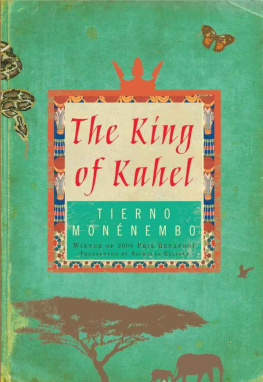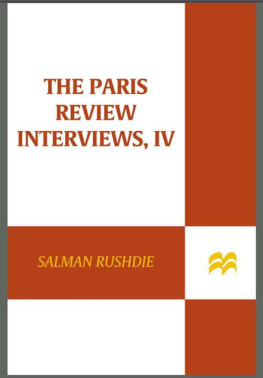PENGUIN BOOKS
THE INTERROGATION
J. M. G. Le Clzio was born on 13 April 1940 in Nice. He was educated at the University College in Nice and at Bristol and London universities. With his knowledge of English he was able to work closely with his translator on The Interrogation , his first novel, which won the Prix Renaudot in 1963. Since then he has written over forty highly acclaimed books and has been translated into thirty-six languages. The Flood, Fever and Terra Amata are available as Penguin Modern Classics. Le Clzio was awarded the Nobel Prize in Literature in 2008. He divides his time between New Mexico, Nice and Mauritius.
J. M. G. Le Clzio
The Interrogation
Translated from the French by Daphne Woodward

PENGUIN BOOKS
PENGUIN BOOKS
Published by the Penguin Group
Penguin Books Ltd, 80 Strand, London WC2R 0RL , England
Penguin Group (USA) Inc., 375 Hudson Street, New York, New York 10014, USA
Penguin Group (Canada), 90 Eglinton Avenue East, Suite 700, Toronto, Ontario, Canada M4P 2Y3
(a division of Pearson Penguin Canada Inc.)
Penguin Ireland, 25 St Stephens Green, Dublin 2, Ireland (a division of Penguin Books Ltd)
Penguin Group (Australia), 250 Camberwell Road, Camberwell, Victoria 3124, Australia
(a division of Pearson Australia Group Pty Ltd)
Penguin Books India Pvt Ltd, 11 Community Centre, Panchsheel Park, New Delhi 110 017, India
Penguin Group (NZ), 67 Apollo Drive, Rosedale, North Shore 0632, New Zealand
(a division of Pearson New Zealand Ltd)
Penguin Books (South Africa) (Pty) Ltd, 24 Sturdee Avenue,
Rosebank, Johannesburg 2196, South Africa
Penguin Books Ltd, Registered Offices: 80 Strand, London, WC2R 0RL , England
www.penguin.com
Le Procs-Verbal first published in France 1963
This translation first published in Great Britain by Hamish Hamilton 1964
First published in Penguin Books 1970
This facsimile edition published 2008
Copyright ditions Gallimard, 1963
Translation copyright Hamish Hamilton, 1964
All rights reserved
The short extract from A High Wind in Jamaica by Richard Hughes is reproduced by permission of Chatto & Windus Ltd
The moral right of the author and of the translator has been asserted
Except in the United States of America, this book is sold subject to the condition that it shall not, by way of trade or otherwise, be lent, re-sold, hired out, or otherwise circulated without the publishers prior consent in any form of binding or cover other than that in which it is published and without a similar condition including this condition being imposed on the subsequent purchaser
ISBN: 978-0-14-192752-7
Poll, as if he had been my favourite, was the only person permitted to talk to me.
Robinson Crusoe
I have two secret ambitions. One of them is to write, one day, a novel of such a kind that if the hero dies in the last chapter or, at a pinch, develops Parkinsons disease I shall be swamped beneath a flood of scurrilous anonymous letters.
From this point of view, I know , The Interrogation is not entirely successful. It is perhaps too serious, too mannered and wordy; its style ranges from para-realistic dialogue to pedantically aphoristical bombast.
But I dont despair of writing a really effective novel later on: something in the spirit of Conan Doyle, appealing not to the readers taste for realism along the broad lines of psychological analysis and illustration but to their sentimentality.
It seems to me that in this direction there are great untrodden wastes to be explored, vast frozen regions dividing author from reader. Their exploration should employ every kind of sympathetic approach, from the humorous to the naive; it should not be systematic. There comes a moment when between the teller and the listener belief manifests itself, takes shape. This is perhaps the moment attained in the novel of action, the essential factor of which may be a species of compulsion. Where the words convey an elusive touch of reminiscence, a domestic quality. Where just as in a magazine serial or a strip-cartoon in a cheap paper every girl is expected to have a sigh of excitement, filling in the gap that yawns between the lines until then.
It seems to me that writing, communicating, implies the ability to make anybody believe anything. And only an uninterrupted sequence of indiscretions can dent the readers armour of indifference.
The Interrogation is the story of a man who is not sure whether he has just left the army or a mental home. In other words, I deliberately chose, at the outset, a tenuous, abstract theme. I have made very little attempt at realistic treatment (I have a stronger and stronger impression that there is no such thing as reality); I would like my story to be taken as a complete fiction, interesting only in so far as it produces a kind of repercussion (however briefly) on the readers mind. This sort of thing is familiar to all readers of detective stories and so forth. A kind of game or jigsaw puzzle in the form of a novel. It couldnt be taken seriously, of course, but for the fact that the method has other advantages it lightens the style, livens up the dialogue, and avoids dry-as-dust description and stale psychology.
I apologize for putting forward a few theories in this way; that form of vanity is rather too fashionable nowadays. I also apologize for any slips or typing mistakes there may still be in my manuscript, in spite of several readings. (I had to type it myself, and I can only type with one finger of each hand.)
Lastly, I would like to mention that I have begun another and much longer story, telling as simply as possible what happens the day after a girls death.
Very respectfully yours
J. M. G. LE CLZIO
A. Once upon a little time, in the dog-days, there was a fellow sitting at an open window; he was an inordinately tall boy with a slight stoop, and his name was Adam; Adam Polio. He had the air of a beggar in his way of looking everywhere for patches of sunshine and sitting for hours practically motionless in the angle of a wall. He never knew what to do with his arms, he usually left them to dangle at his sides, touching his body as little as possible. He was like one of those sick animals that make a canny retreat into some refuge and watch stealthily for danger, the kind that comes creeping along the ground and hides in its skin, blending right into it. Now he was lying on a deck-chair by the open window, naked to the waist, bareheaded, bare-footed, with the sky slanting overhead. All he had on was a pair of beige linen trousers, shabby and sweat-stained; he had rolled the legs up to his knees.
The yellow sunshine was hitting him full in the face, but without glancing off again: it was immediately absorbed by his damp skin, striking no sparks, not even the faintest little gleam. He guessed as much and made no movement, except that from time to time he lifted a cigarette to his lips and drew in a gulp of smoke.
When the cigarette was finished, when it burnt his thumb and fore-finger and he had to drop it on the floor, he took a handkerchief from his trousers pocket and with great deliberation wiped his chest and forearms, the base of his throat and his armpits. Once rid of the thin film of sweat which had protected it until that moment, his skin began to glow like fire, red with light. Adam got up and walked quickly to the back of the room, into the shade; from the pile of blankets on the floor he pulled out an old shirt made of cotton, flannelette or calico, shook it and slipped it on. When he bent down, the tear in the middle of the back, between his shoulder-blades, opened in a way it had, to the size of a coin, and revealed, at random, three pointed vertebrae which stuck out beneath the taut skin like fingernails under thin rubber.
Next page





